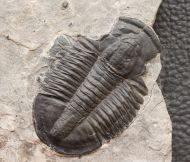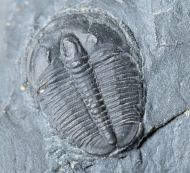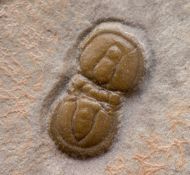Fossilien Angebot
Willkommen zurück!
Utah
Utah Trilobiten
Utah Trilobiten
In dieser Kategorie unseren Fossilien Shops finden Sie eine Auswahl an Trilobiten aus Utah. Utah ist ein Paradies für Trilobiten-Liebhaber. In diesem Bundesstaat im Westen der USA finden sich einige der schönsten und interessantesten Trilobiten-Fossilien der Welt. Sie stammen aus verschiedenen geologischen Zeitaltern, von Kambriums bis zum Devon.
An dieser Stelle wollen wir einige der bekanntesten und typischsten Trilobiten Arten aus Utah erwähnen, wie zum Beispiel Elrathia kingii, Asaphiscus wheeleri, Zacanthoides typicalis oder Agnostus pisiformis. Außerdem wollen wir einen Überblick über die wichtigsten Trilobiten-Formationen geben, die die Fossilien enthalten. Dazu gehören zum Beispiel die Wheeler-Formation, die Marjum-Formation, die Weeks-Formation oder die Pierson-Cove-Formation. Diese Formationen sind Teil einer Abfolge von Sedimentgesteinen, die sich im mittleren Kambrium in einem flachen Meer abgelagert haben. Hier ist eine Tabelle, die die Abfolge der Formationen des mittleren Kambriums von Utah zeigt:
Hier auf der Tabelle sieht man auch, dass die Lithostratigraphischen Formationen (Gesteinseinheiten) teilweise zeitlich Überschneiden. Pierson-Cove-Formation entspricht zeitlich der Wheeler Formation sowie der Marjum Formation. Dadurch kommt auch in der Pierson-Cove-Formation auch der Trilobit Elrathia kingii vor. Und auch umgekehrt, wenn jedoch auch deutlich seltener. Der Übergang zwischen den Arten Elrathia marjumi sowie Elrathia kingii ist mitunter fließend. Elrathia marjumi ist deutlich seltener als Elrathia kingii und unterscheidet sich von dieser durch das im Pygidium verwachsenen Pleuren - Segment. Zudem neigt Elrathia marjumi dazu oft auch 14 Körpersegmente zu haben. Es ist jedoch hierbei zu beachten, dass die Gattung Elrathia eine gewisse Variabilität der Anzahl der Körpersegmente hat. Für Elrathia kingii sind es typischerweise 13 Pleural - Segmente. Aus Utah konnten tatsächlich hier sämtliche mögliche Varianten dieser Merkmale gefunden werden. Aslo alle möglichen Anzahlen von 12 bis 15 Segmenten sowie mit und ohne Pleural Segment in Pygidium. gefunden Dies ist schon eine Besonderheit, da sich hier der Übergang einer Spezies in eine andere live beobachten lässt. Elrathia marjumi und Elrathia kingii kommen zeitweise Paralel vor. Jedoch ist Elrathia kingii nicht mehr in der Jüngeren Marjum Formation bekannt.
| Formation | Alter (Mio. Jahre) | Typische Trilobiten | Bild |
| Weeks | 505 - 500 | Cedaria minor | 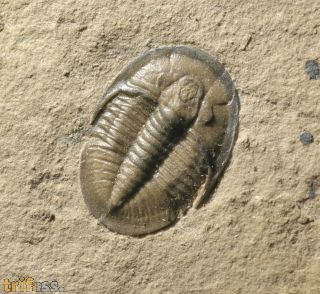 |
| Marjum | 500 - 497 | Modocia typicalis | 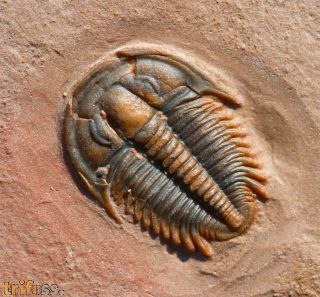 |
| Wheeler | 497 - 490 | Elrathia kingii | 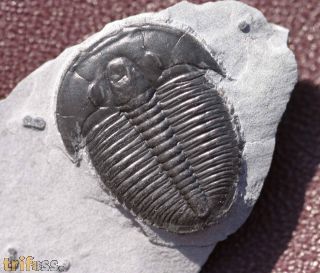 |
| Pierson-Cove | 490 - 485 | Elrathia marjumi | 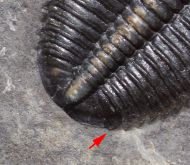 |
